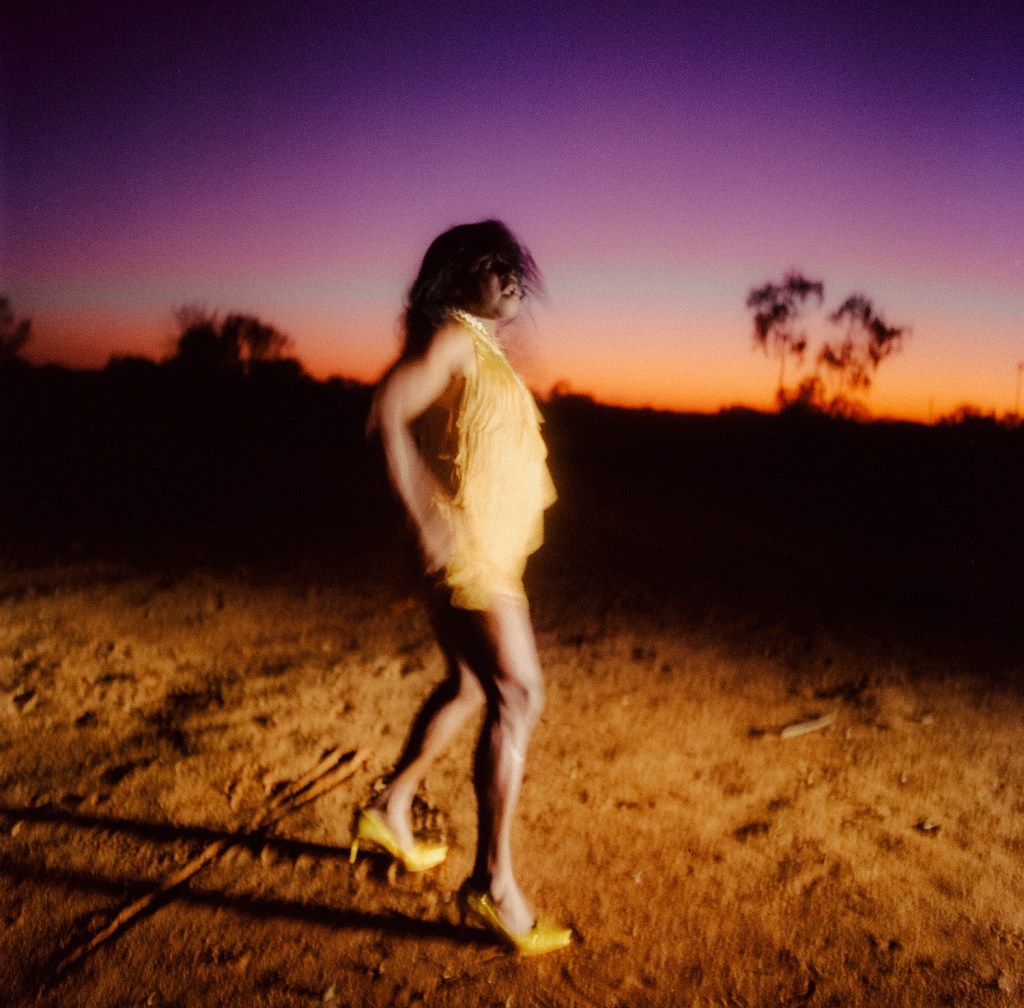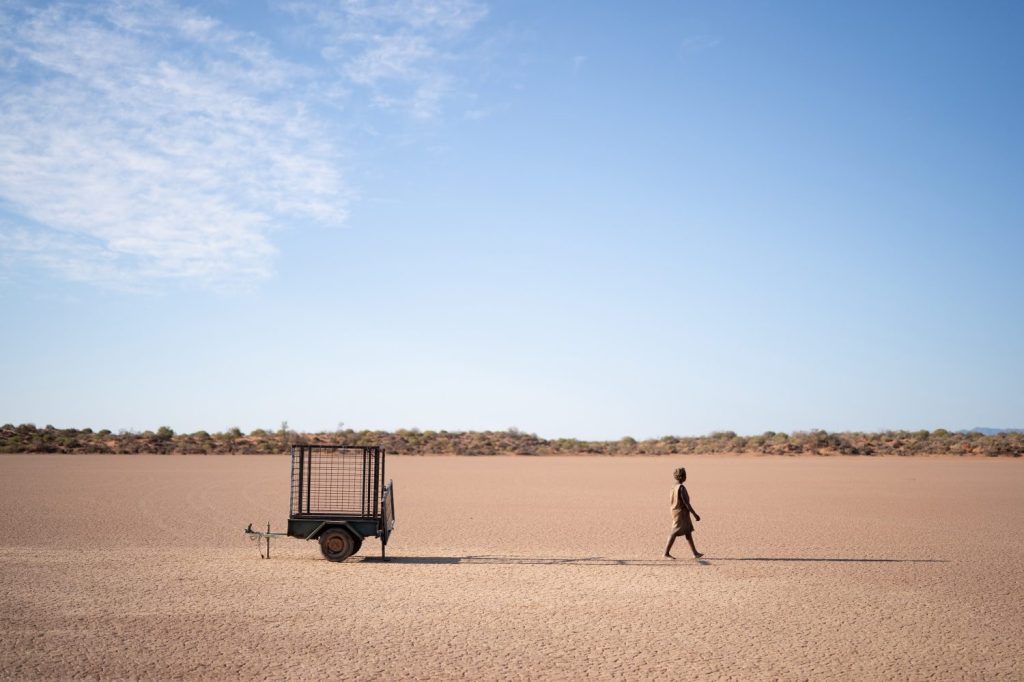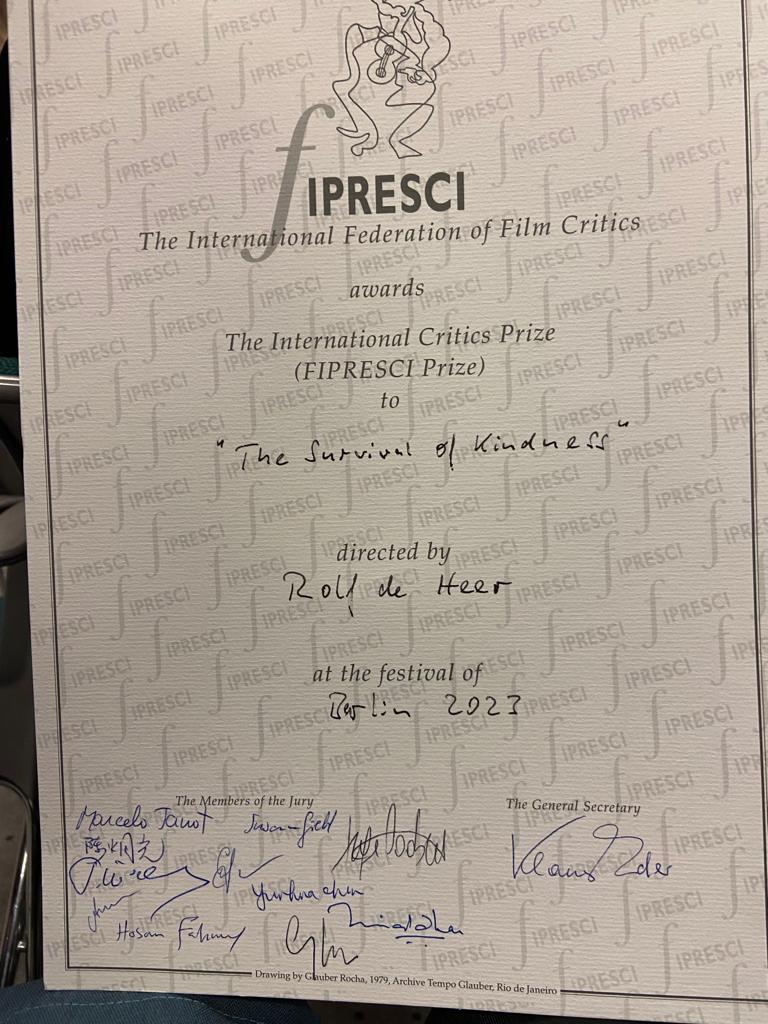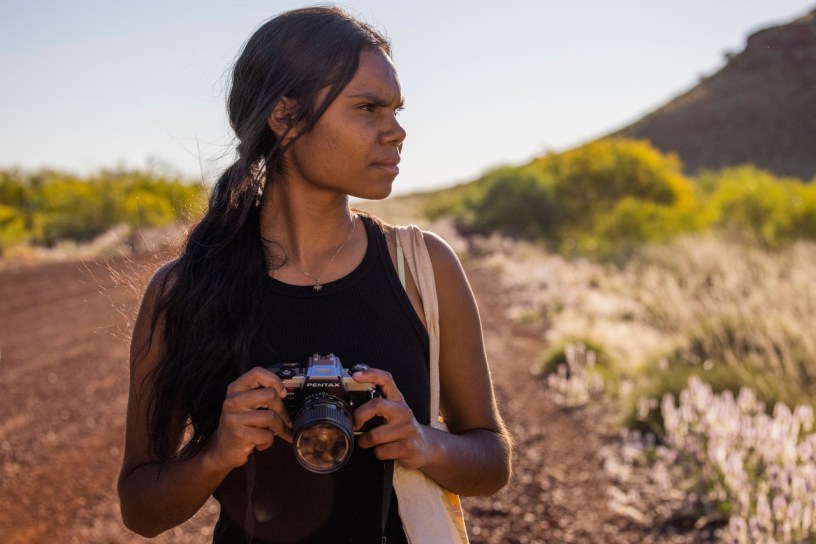Jub Clerc’s Sweet As took home the Crystal Bear in the Berlin Film Festival Generation Kplus competition over the weekend, while short film Marungka tjalatjunu (Dipped in Black) won the Silver Bear Jury Prize and Rolf de Heer’s The Survival of Kindness collected the top critics’ award, the FIPRESCI Prize.
Sweet As was awarded the Crystal Bear by a jury that included Luan Faik Can, Valerie Louise Da Silva Matos, Timon Mahlke, Nina Marie Stellmacher, Defne Frida Sungu, Enno Winch and Jerrit Wunde.
Clerc’s debut feature, the film is a coming-of-age tale stars Shantae Barnes-Cowan as 16-year-old Indigenous girl Murra, who finds herself abandoned after an argument with her mother. An unusual lifeline is thrown her way by her Uncle Ian (Mark Coles Smith), a local cop, in the form of a travelling photo safari.
A Nyul Nyul and Yawuru writer/director, Clerc penned the script with long-time collaborator Steve Rodgers. Arenamedia’s Liz Kearney is the producer and Robert Connolly and Robert Patterson executive producers.
Speaking of the decision to award Sweet As the Crystal Bear, the jury said: “A film that touched us by virtue of the personal stories of the characters and its impressive backdrops. You’ve seen various characters grow together.”
It is yet another accolade for the film, which first premiered at the Melbourne International Film Festival (MIFF) last August, where Clerc won the $70,000 Blackmagic Design Australian Innovation Award. It was quickly snapped up for ANZ distribution by Roadshow Films before going on to the Toronto International Film Festival, where it became the first Australian film to win the Network for the Promotion of Asian Cinema (NETPAC) Award for best Asian feature film.
Marungka tjalatjunu (Dipped in Black), directed by Yankunytjatjara artist Derik Lynch and artist Matthew Thorne, won the Silver Bear Jury Prize for short film.
The multi-disciplinary film and photographic art project follows Lynch’s road trip from the oppression of white city life in Adelaide back to country, Aputula, to perform his own story on sacred Inma ground.
It is written and directed by Lynch and Thorne, with Patrick Graham and Thorne producing. The South Australian Film Corporation, Adelaide Film Festival and Panavision backed the film via the Short Film Production initiative, originally premiering in Adelaide Film Festival last October.

In its statement, the jury that comprised Cătălin Cristuțiu, Sky Hopinka and Isabelle Stever said: “The film exposes and weaves together those tender and difficult threads of living in multiple worlds–worlds which are your own, full of loss and love, of trauma and survival–and worlds which are thrust upon you, often violent, often unrelenting, and often unforgiving.
“Marungka tjalatjunu navigates beautifully and eloquently an assured sense of self in body and in language, while exploring the questions of what happens when you leave your homeland, and how you return. This is a film of healing and of elegance, and the places that exist between sunrise and sunset, and dusk and dawn.”
The Golden Bear for Best Short Film went to Les chenilles, directed by Michelle Keserwany and Noel Keserwany.
Determined by Berlinale’s FIPRESCI Jury, The Survival of Kindness was awarded the top prize from all 19 films in the festival’s official competition.
The dialogue-free film tells the story of BlackWoman (Mwajemi Hussein), who is abandoned in a cage in the middle of the desert. But BlackWoman escapes, journeying through pestilence and persecution, from desert to mountain and finally to city, on a quest for an unknown beginning.

De Heer is the writer, director and producer via his company Vertigo Productions, alongside producer Julie Byrne of Triptych Pictures. The Survival of Kindness serves as the first HOD credit for a number of First Nations practitioners, including editor Isaac Coen Lindsay, production designer Maya Coombs, sound designer Adam Dixon-Galea and composer Anna Leibziet, as well as other creatives DOP Maxx Corkindale and costume/makeup designer Elle Baldock.
It was one of two Australian films in the official competition, alongside Ivan Sen’s Limbo – the first local projects to compete for the Golden Bear since 2006’s Candy.

FIPRESCI – International Federation of Film Critics Associations – is the leading association of national organisations of professional film critics and film journalists from around the world. The Berlin jury included critics from Armenia, Belgium, Brazil, Egypt, Germany, India, Macedonia, Romania, Switzerland and Ukraine.
Taking home the Golden Bear at Berlin this year was documentary On the Adamant by Nicolas Philibert, determined by a jury overseen by Kristen Stewart.
The film follows a floating structure located on the Seine, de jour L’Adamant, a mental health facility with a focus on creativity.
The Silver Bear for Best Director went to Philippe Garrel for Le grand chariot (The Plough), the Silver Bear Jury Prize to Joᾶo Canijo for Bad Living (Mal Viver), and the Silver Bear Grand Jury Prize to Christian Petzold for Roter Himmel. Angela Schanelec won the Silver Bear for Best Screenplay for Music and cinematographer Hélène Louvart won the Silver Bear for Outstanding Artistic Contribution for Disco Boy.
The Silver Bear for Best Leading Performance was won by Sofía Ortero for 20,000 Species of Bees, and the Silver Bear for Best Supporting Performance went to Thea Ehre for Till the End of The Night.
Steven Spielberg was presented an honorary Golden Bear, while cinematographer Caroline Champetier was honoured with the Berlinale Camera.
Other Australian projects to screen in Berlin this year included Matchbox Pictures/Stan’s Bad Behaviour in Berlinale Series, Danny and Michael Philippou’s Talk to Me and Soda Jerk’s Hello Dankness. There was also a retrospective screening of Muriel’s Wedding.


